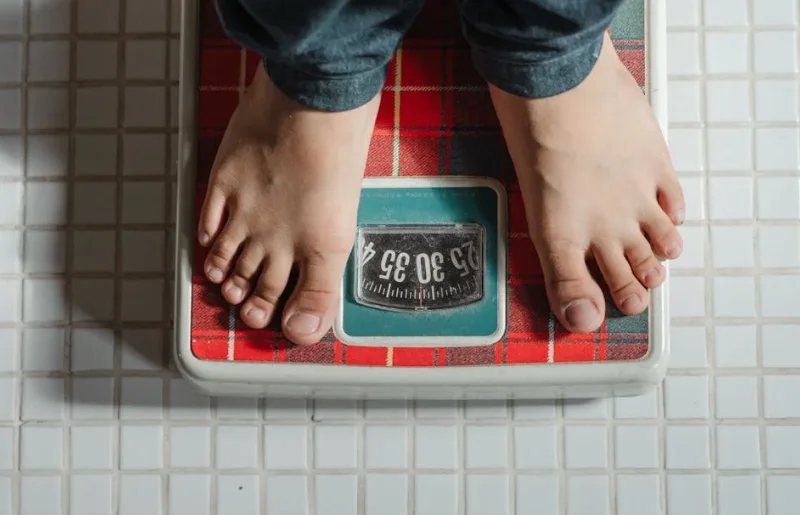Losing weight is a common goal for many people, and understanding how long does it takes to lose 20 pounds is essential for setting realistic expectations and creating an effective plan. Various factors influence weight loss, including diet, exercise, and lifestyle habits. By adopting the right strategies, you can achieve your weight loss goals healthily and sustainably.
This comprehensive guide will explore different methods to help you lose 20 pounds, including exercise routines, dietary changes, and lifestyle adjustments. We will also discuss the factors that influence weight loss, provide a weekly weight loss plan, and offer additional tips for success. Whether you’re looking to shed pounds quickly or gradually, this article will equip you with the knowledge and tools needed to reach your goal.
Factors Influencing Weight Loss

Several factors impact how quickly you can lose weight, including:
- Metabolism: Your metabolic rate significantly affects how fast you burn calories.
- Diet: The type and amount of food you consume directly affect your weight loss progress.
- Exercise: Physical activity helps burn calories and build muscle, contributing to weight loss.
- Sleep and Stress: Sleep and stress management are crucial for maintaining a healthy weight.
How Long Does It Take to Lose 20 Pounds?

Health experts recommend losing weight at a gradual pace of 1-2 pounds per week. This means it can take approximately 10-20 weeks to lose 20 pounds.
Weekly Weight Loss Plan
| Week | Target Weight Loss (lbs) | Cumulative Weight Loss (lbs) |
| 1 | 1-2 | 1-2 |
| 2 | 1-2 | 2-4 |
| 3 | 1-2 | 3-6 |
| 4 | 1-2 | 4-8 |
| 5 | 1-2 | 5-10 |
| 6 | 1-2 | 6-12 |
| 7 | 1-2 | 7-14 |
| 8 | 1-2 | 8-16 |
| 9 | 1-2 | 9-18 |
| 10 | 1-2 | 10-20 |
How to Lose 20 Pounds Through Exercise

Exercise plays a crucial role in weight loss by helping you burn calories and build muscle. Incorporating a variety of workouts into your routine can accelerate your journey to losing 20 pounds and improve your overall fitness.
Cardio Workouts
Cardio exercises are effective for burning calories and improving cardiovascular health. Running, cycling, and swimming can help you create a calorie deficit.
High-Intensity Interval Training (HIIT)
HIIT involves short bursts of intense exercise followed by rest periods. This method can burn a significant number of calories in a short time and boost your metabolism.
Strength Training
Strength training helps build muscle mass and increases your resting metabolic rate. Incorporate exercises like weight lifting, squats, and push-ups into your routine.
Consistency is Key
Regular exercise is crucial for weight loss. Aim for at least 150 minutes of moderate-intensity or 75 minutes of high-intensity weekly exercise.
Combining Cardio and Strength
A balanced exercise routine with cardio and strength training can maximize calorie burn and muscle building.
Tracking Progress
Keep track of your workouts and progress to stay motivated and adjust your routine.
Rest and Recovery
Allow your body to recover by incorporating rest days into your exercise plan. Overtraining can lead to injuries and hinder progress.
How to Lose 20 Pounds Through Walking

Walking is an accessible and effective way to lose weight, especially for those who are new to exercise or prefer low-impact activities. Increasing your daily step count and walking consistently can gradually shed pounds and enhance your cardiovascular health.
Daily Walking Goals
Walking is a low-impact exercise that can contribute to weight loss. Aim for at least 10,000 steps daily to burn calories and improve overall fitness.
Increasing Intensity
Incorporate brisk or uphill walking intervals to increase the intensity of your walks. This can help you burn more calories.
Walking with Purpose
Incorporate walking into your daily routine by walking instead of driving, taking the stairs, or going for a walk during breaks.
Walking Workouts
Plan dedicated walking workouts where you focus on maintaining a brisk pace for a set duration. Start with 30 minutes and gradually increase the time.
Using a Pedometer or Fitness Tracker
A pedometer or fitness tracker can help you monitor your steps and stay motivated to reach your daily walking goals.
Walking Groups or Partners
Join a walking group or find a walking partner to make the activity more enjoyable and hold yourself accountable.
Combining Walking with Other Exercises
Complement your walking routine with other forms of exercise, such as strength training or yoga, to achieve a balanced fitness regimen.
How to Lose 20 Pounds Through Diet

Diet is a fundamental component of weight loss, directly affecting your calorie intake and nutritional balance. Adopting healthy eating habits and making mindful food choices can significantly contribute to losing 20 pounds and maintaining long-term weight management.
Balanced Diet
A balanced diet is essential for weight loss. Focus on consuming nutrient-dense foods that provide essential vitamins and minerals.
Protein-Rich Foods
Include lean proteins like chicken, fish, beans, and tofu. Protein helps build and repair muscles and keeps you feeling full.
Fruits and Vegetables
Consume a variety of fruits and vegetables to get essential nutrients and fiber. They are low in calories and can help you feel satisfied.
Whole Grains
Opt for whole grains like brown rice, quinoa, and whole wheat bread. Whole grains provide sustained energy and help regulate blood sugar levels.
Healthy Fats
Incorporate healthy fats from avocados, nuts, seeds, and olive oil. Healthy fats support overall health and satiety.
Portion Control
Be mindful of portion sizes to avoid overeating. Use smaller plates and measure servings to help control portions.
Hydration
Drink plenty of water daily to stay hydrated and support your metabolism. Sometimes, thirst is mistaken for hunger.
Meal Planning
Plan your meals and snacks to ensure you consume balanced and nutritious foods. Meal planning can help you avoid unhealthy choices.
Tips for Successful Weight Loss

Achieving weight loss success involves more than just diet and exercise; it requires a holistic approach to lifestyle changes. Here are some effective tips to help you stay on track and reach your weight loss goals.
Setting Realistic Goals
Setting achievable and realistic goals is crucial for maintaining motivation and avoiding discouragement. Aim for a steady weight loss of 1-2 pounds per week, considered healthy and sustainable. This approach helps you achieve your goal of losing 20 pounds and ensures that the weight loss is maintainable in the long run. Break down your ultimate goal into smaller, manageable milestones to motivate yourself throughout the journey.
Keep a Food Journal
Tracking what you eat can provide valuable insights into your eating habits and help you identify areas for improvement. A food journal can also help you stay accountable to your dietary goals. Record what you eat and when and why you eat to uncover patterns such as emotional eating or late-night snacking. This comprehensive approach can help you make informed adjustments to your diet, making it easier to achieve your weight loss targets.
Seeking Support
Having a support system can make a significant difference in your weight loss journey. Consider joining a weight loss group, working with a personal trainer, or enlisting the help of friends and family to keep you motivated and accountable. Support can come in many forms, such as sharing recipes, exercising together, or simply offering encouragement. A strong support network can help you stay committed to your weight loss goals, especially during challenging times.
Monitoring Progress
Regularly monitor your progress by tracking your weight, measurements, and fitness achievements. Celebrate small victories along the way. Keeping a detailed record of your progress can help you stay motivated and make necessary adjustments to your plan. Consider using apps or wearable devices to track your activity levels, sleep patterns, and calorie intake. This data can provide a comprehensive view of your progress and highlight areas needing more attention.
Avoiding Fad Diets
Steer clear of fad diets that promise rapid weight loss. Focus on making sustainable lifestyle changes that promote long-term health. Fad diets often result in temporary weight loss and can be detrimental to your health. Instead, opt for a balanced diet rich in whole foods, lean proteins, healthy fats, and plenty of fruits and vegetables. This approach supports steady and sustainable weight loss, helping you achieve your goal of losing 20 pounds in a healthy manner.
Managing Stress
Chronic stress can lead to emotional eating and weight gain. Incorporate stress management techniques such as meditation, deep breathing exercises, or yoga into your daily routine to maintain a balanced and healthy lifestyle. Managing stress effectively can prevent it from sabotaging your weight loss efforts. Regular physical activity can also help reduce stress levels and improve your overall well-being.
Stay Hydrated
Drinking plenty of water is vital for overall health and can aid in weight loss by helping you feel full and reducing the likelihood of overeating. Aim to drink at least 8 glasses of water a day. Staying hydrated can also improve your metabolism and energy levels, making sticking to your weight loss plan easier. Consider carrying a water bottle with you throughout the day as a reminder to stay hydrated.
Getting Enough Sleep
Aim for 7-9 hours of quality sleep per night. Adequate sleep is essential for overall health and can aid in weight loss. Poor sleep can disrupt your metabolism and increase cravings for unhealthy foods, making it harder to lose weight. Establish a consistent sleep routine by going to bed and waking up at the same time each day. Create a relaxing bedtime routine to improve the quality of your sleep, such as reading a book, taking a warm bath, or practicing mindfulness.
Sauna Weight Loss
While considering various methods to aid in weight loss, you might wonder, “Does sauna help you lose weight?” Saunas primarily contribute to temporary water weight loss through sweating. This can provide a quick drop in weight, which might be encouraging, but it is not fat loss. Saunas can also promote relaxation and stress relief, which benefit an overall healthy lifestyle. However, relying solely on saunas to lose 20 pounds is not effective. Sustainable weight loss requires a combination of a balanced diet, regular exercise, and healthy lifestyle choices.
The Role of Hydration in Weight Loss

- Boosts Metabolism: Drinking water can temporarily boost your metabolism, helping you burn more calories.
- Reduces Appetite: Sometimes, thirst is mistaken for hunger. Drinking water before meals can help reduce appetite and prevent overeating.
- Aids in Digestion: Proper hydration supports digestion and prevents constipation, which can help you feel lighter and more energetic.
- Flushes Out Toxins: Water helps flush out toxins from your body, promoting overall health and well-being.
The Impact of Sleep on Weight Loss

- Hormonal Balance: Lack of sleep can disrupt hormones that regulate hunger and appetite, leading to increased cravings and overeating.
- Energy Levels: Adequate sleep ensures you have the energy to stay active and exercise regularly.
- Metabolism: Poor sleep can slow your metabolism, making it harder to lose weight.
- Stress Reduction: Quality sleep helps reduce stress levels, which can prevent stress-related eating.
Conclusion
Losing 20 pounds is a significant and achievable goal when approached with the right strategies and mindset. You can create a sustainable weight loss plan that fits your needs by combining regular exercise, mindful dietary choices, and healthy lifestyle habits. Remember to set realistic goals, track progress, and seek support when needed. Whether you focus on exercise, walking, or diet, consistency and dedication are key to your success. Stay patient and committed, and you’ll reach your weight loss goals and enjoy a healthier, more vibrant life.
FAQs
How long does it take to lose 20 pounds with diet alone?
Losing 20 pounds through diet alone can take longer than combining diet with exercise. On average, aiming for a weight loss of 1-2 pounds per week is achievable, meaning it could take 10-20 weeks to lose 20 pounds.
Can I lose 20 pounds in a month?
Losing 20 pounds in a month is an aggressive goal and may not be safe or sustainable for most people. Rapid weight loss can lead to muscle loss, nutritional deficiencies, and other health issues. Aim for a gradual weight loss of 1-2 pounds weekly for better long-term results.
What should I do if I hit a weight loss plateau?
If you hit a weight loss plateau, try adjusting your diet or exercise routine. Increase the intensity or duration of your workouts, or consider changing your meal plan to include more nutrient-dense foods. Sometimes, simply varying your routine can help you overcome a plateau and continue losing weight.







